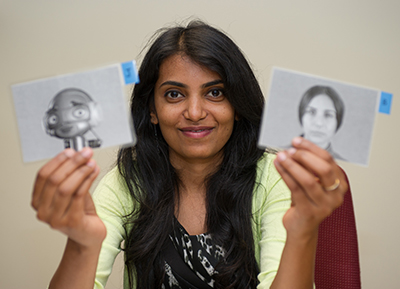The School of Psychology at Georgia Tech is a multidisciplinary academic unit. The research and educational programs of the School help study what makes us human and mechanistically describe the dynamic human experience. We achieve this by bringing experts from complementary disciplines together to innovate at the intersection of disciplines that study the brain, behavior, technology, and people & society.
As you roam our webpage, you’ll notice that psychology at GaTech is rather unique in a number of ways. You already know that we are embedded in one of the world's leading science and engineering institutions of higher education. Unlike many of our peers, our home college is the College of Sciences, which also houses the likes of Chemistry, Physics, Biology, and Math. You’ll see we have a structure of 5 programs which include Adult Development and Aging, Cognition and Brain Science, Engineering, Industrial-Organizational, and Quantitative Psychology help us manage the research efforts and provide focused training to our graduate students, but all of the faculty move easily between areas. Finally, you may notice that we are small, intentionally. It allows us to focus our research and our training in a way that has made us exceptional.
The Faculty, Grad Students, Undergraduates, and Staff are eager to meet you.












